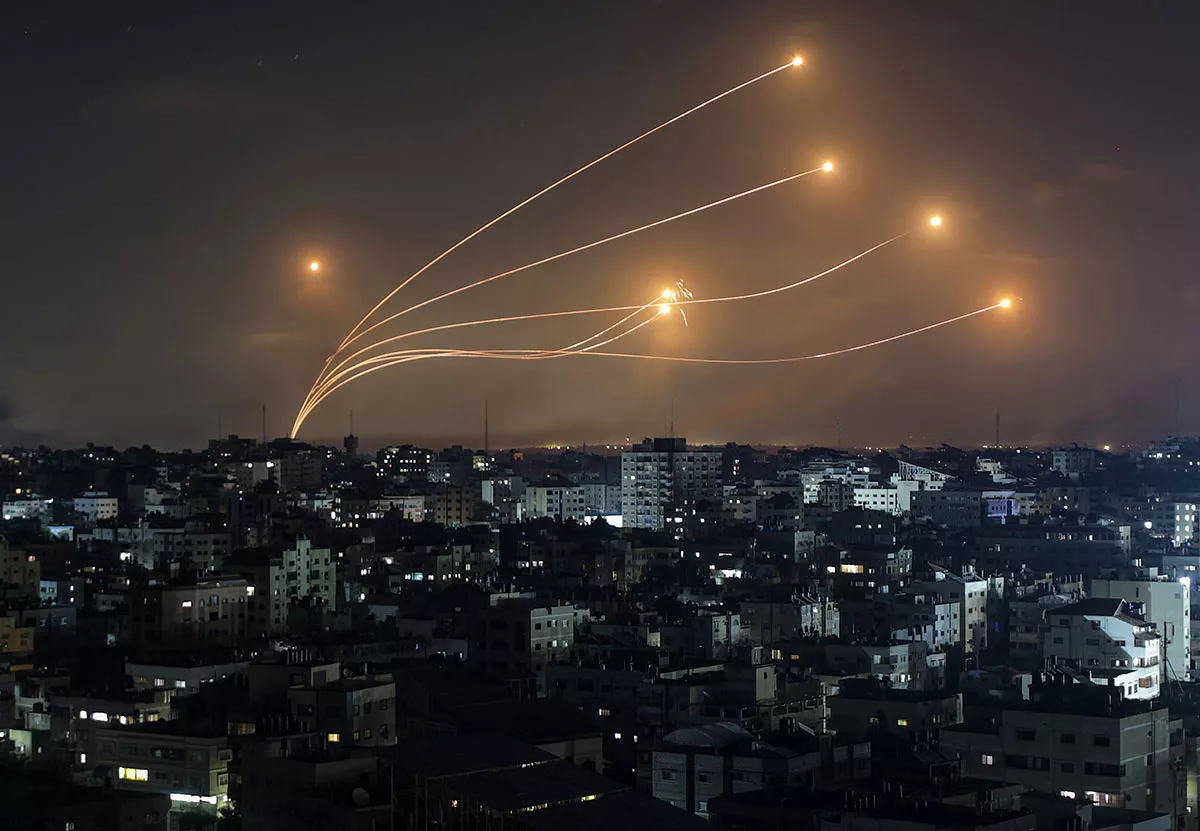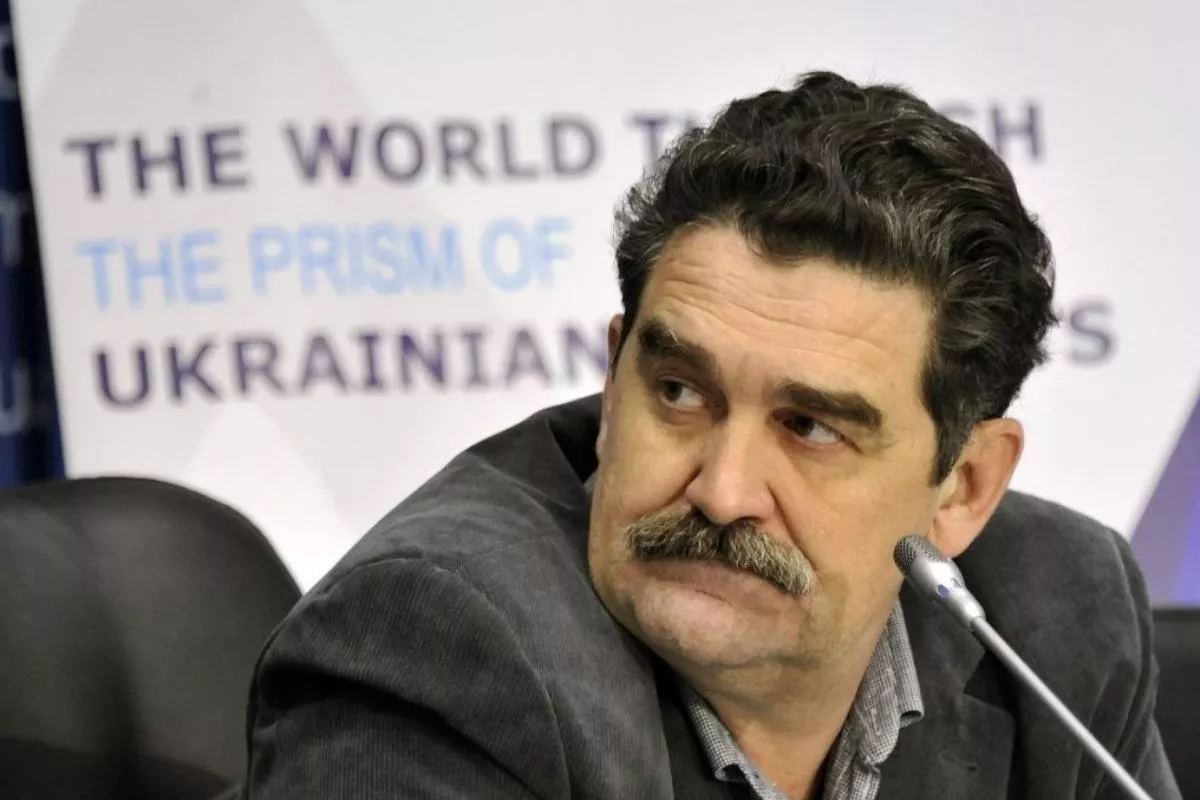Iran hits first: Unraveling Israel's game plan for response Experts share their predictions
The escalating tensions in the Middle East are raising alarm bells worldwide and prompting a host of pressing questions. Why did Iran initiate a significant missile assault on Israel at this juncture? Is this action directly linked to Israel's ground operations against Hezbollah in southern Lebanon? What potential ramifications lie ahead? Should we anticipate an Israeli counter-response to Iran? And does the current situation pose a risk of widespread escalation across the region?
Leading experts in Middle Eastern affairs weigh in on these critical issues in conversation with Caliber.Az.

Avraham Shmulevich, an authority on the Caucasus, Middle East and the Islamic world, as well as the head of the Institute for Eastern Partnership in Jerusalem, began by highlighting a recent terrorist incident in Jaffa that left seven dead, where two Palestinian attackers opened fire on passengers aboard a streetcar.
“Regarding the Iranian missile strikes, their impact has been largely minimal. The only reported casualty was a Palestinian worker from Gaza who died in Jericho, on Palestinian Authority territory, as a result of an Iranian missile strike,” the expert noted.
Certainly, he believes that Iran's attack is closely tied to the initiation of Israel's ground operations against Hezbollah.
“There appears to have been a significant internal struggle among Iran's leadership for some time. On one side, President Pezeshkian has repeatedly expressed the desire for improved relations with the West and the lifting of sanctions. Initially, there were no severe threats directed at Israel, leading many observers to conclude that at least part of the Iranian leadership understood the potential costs of a direct confrontation with Israel and sought to avoid it. Conversely, reports emerged indicating that a faction within the IRGC was advocating for a robust response. It seems this faction ultimately prevailed,” the specialist noted.
In his view, Israel cannot afford to ignore the recent attack.
“For the Netanyahu government, failure to respond would be disastrous, as the Israeli populace — across the political spectrum — demands a reaction to this unprecedented act of aggression. Moreover, the Israeli leadership has publicly declared that any Iranian strike will be met with a severe response, potentially targeting Iranian strategic facilities. Netanyahu has practically stated that the fate awaiting the Iranian leadership could mirror that of Haniyeh or Nasrallah, implying that they too would face destruction. Therefore, Israel must respond.
From a military perspective, the disparities are evident. Iran's ground forces are significantly weaker compared to Israel’s. While Iran has considerable manpower, it suffers from outdated equipment — obsolete tanks and aging aircraft. In a direct confrontation, Iran would likely be swiftly defeated. However, a direct clash is improbable due to the geographic distances involved. This situation leaves long-range engagements, where Israeli airpower can operate almost unimpeded in Iranian airspace, as previously demonstrated. Additionally, Israel possesses ballistic missiles and, notably, nuclear capabilities. I believe Israel will soon launch a powerful strike against Iran, as the country’s leadership has no viable alternatives,” the analyst stated.

Regarding the ongoing conflict in Lebanon, he expressed doubt that the missile attack would have any significant impact.
“Iranian missiles are virtually ineffective. Today's events illustrate this — one lightly injured individual in Israel and one dead Arab in the Palestinian Authority territory; that's all there is to report. There was no serious damage, just a hit on an apartment building in northern Tel Aviv with no casualties. In essence, Iranian missiles do not pose even the slightest strategic threat to Israel. Thus, the war in Lebanon will continue as it has been.”
He further assessed the potential for escalating tensions throughout the Middle East, asserting that Iran lacks meaningful allies. “Iran’s only allies are those it trains and supports, such as the Yemeni Houthis, Hezbollah, and various Shiite militias in Iraq. However, they do not possess the capability to support Iran effectively in a conflict. Iran's primary allies are Russia and China, with North Korea as a lesser partner. Still, it is difficult to envision Russia and China entering a war against Israel on behalf of the Iranian regime. The neighbouring Arab states would likely welcome Israeli actions against Iran. Consequently, we don’t anticipate a larger conflict beyond the current situation. Iran is taking considerable risks, presumably because Tehran believes Israel is determined to eliminate Hezbollah. Moreover, Netanyahu has publicly addressed the Iranian populace, clarifying that Israel views this war not as an attack on Iran itself but as a campaign against the oppressive Ayatollah regime.”
As for whether Israel will take decisive actions beyond airstrikes on Iran's strategic sites, potentially targeting its top leadership and seeking to overthrow the regime, he remarked, “That is certainly a possibility. The crucial factor will be the U.S. position, though America is currently preoccupied.” He then added, “We spent some time in the bomb shelter today, but now Jerusalem is calm; there has been no new shelling.”

Igor Semivolos, executive director of the Center for Middle East Studies in Kyiv, expressed his view that Iran's recent attack is connected to the assassination of Hassan Nasrallah and the initiation of Israel's ground operation in southern Lebanon.
"I suspect there was significant pressure from the IRGC on the Iranian leadership — Ali Khamenei and Masoud Pezeshkian — to respond. This situation represents a considerable blow to Iran's influence in the region. I believe that the operation against Hezbollah in Lebanon directly influenced Tehran's decision to strike," he noted.
Semivolos pointed out that both sides appear to have made strategic calculations. "The Americans are not prepared for a large-scale war at this time due to upcoming elections, and this is understood by the Israelis, particularly Netanyahu, who has embarked on this risky path. The Iranians likely recognize this dynamic as well. Additionally, the anticipated signing of a comprehensive agreement between Iran and Russia, despite some disagreements over the Zangezur corridor, may lead Moscow to offer security guarantees to Iran. Without such guarantees, the agreement would lose its significance for Tehran."
He characterized the current situation as already resembling a significant Middle Eastern war, with potential for severe economic repercussions. "There is a possibility of Israeli strikes on oil facilities in Iran, which could escalate tensions in the Persian Gulf. This scenario would prompt increased activity from all involved parties, leading to a crowded and potentially volatile environment. While the Americans will attempt to ease this tension, I have doubts about their success," Semivolos concluded.

Israeli political scientist and Bar-Ilan University professor Ze'ev Hanin stated that the Iranian leadership had little choice but to intervene following the IDF's destruction of a significant portion of Hezbollah's military capabilities.
"The Ayatollahs had been restraining the group in anticipation of a potential Israeli strike on Iran, but that doctrine has now collapsed. Tehran is facing pressure from multiple fronts," Hanin explained.
He emphasized that Israel is also compelled to respond. "The nature of that response will be revealed soon, but it appears to be more powerful than Tehran anticipated," Hanin asserted.








